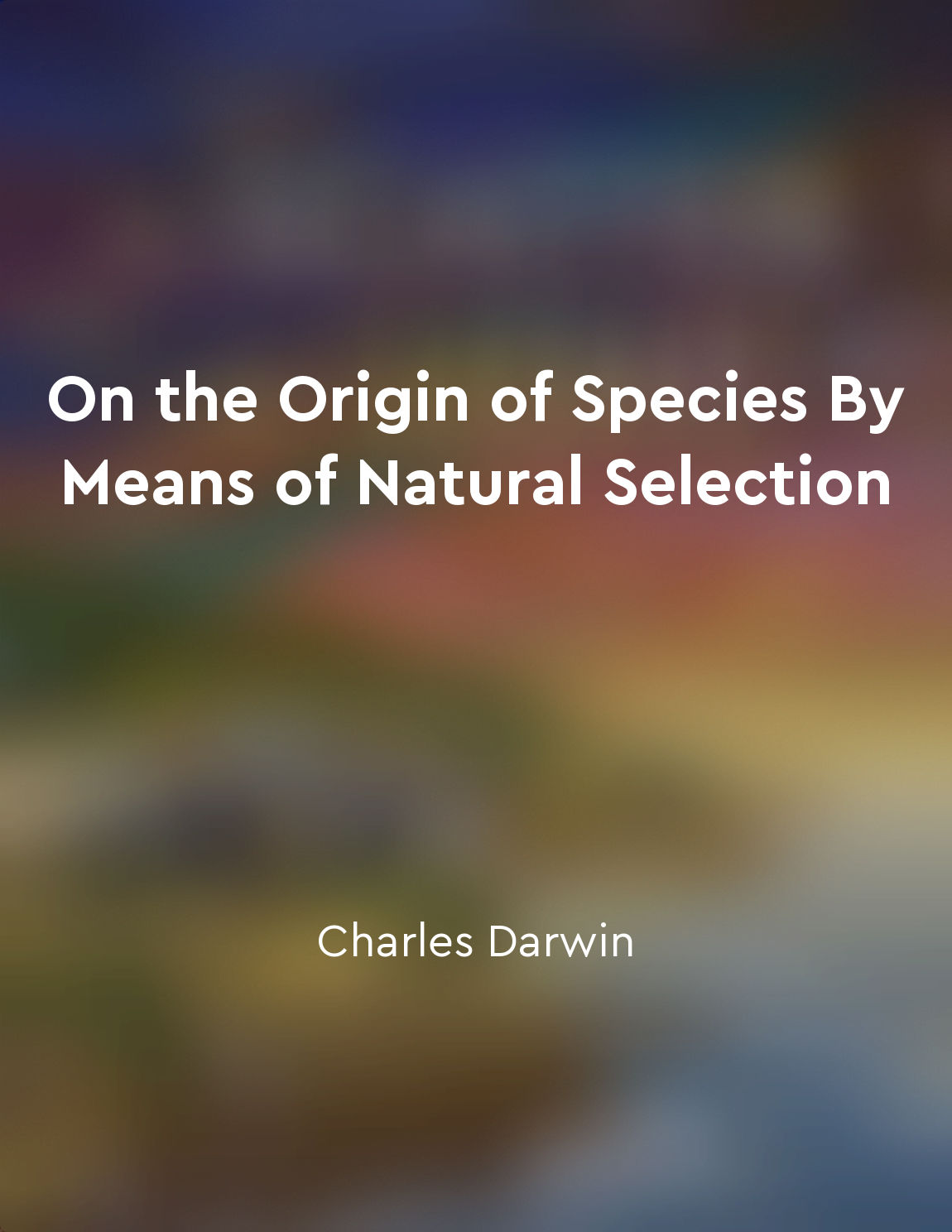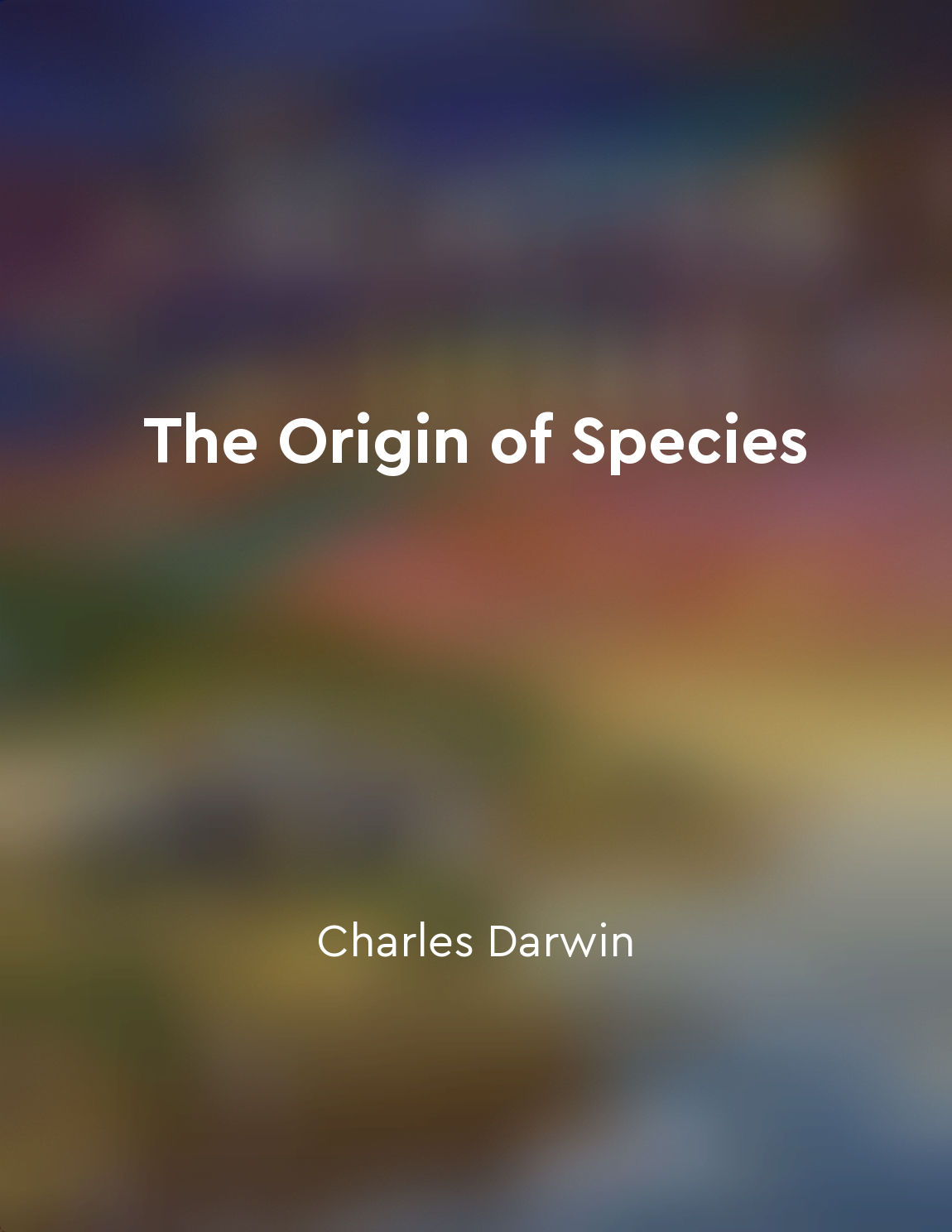Common descent links all living organisms from "summary" of The Origin of Species by Charles Darwin
Darwin proposes that all living organisms on Earth are connected through a shared ancestry, tracing back to a common origin. This concept of common descent forms the foundation of his theory of evolution. By observing the similarities in structure, function, and genetic makeup among different species, Darwin concludes that all organisms are related through a process of gradual modification over time. The idea of common descent challenges the traditional view that each species was independently created by a divine being. Instead, Darwin suggests that all living beings are part of a continuous tree of life, branching out from a single common ancestor. This interconnectedness explains the unity and diversity of life on Earth, as organisms have evolved and diversified through natural selection and adaptation to their environments. Through the mechanism of natural selection, those organisms with advantageous traits are more likely to survive and reproduce, passing on these beneficial characteristics to future generations. Over time, these small variations accumulate and lead to the formation of new species, while still maintaining a connection to their ancestral roots. This process of descent with modification accounts for the diversity of life forms we see today. Darwin's theory of evolution by natural selection provides a comprehensive explanation for the patterns of similarity and diversity observed in the natural world. It offers a coherent framework to understand the relationships between different species and their shared history. By recognizing the common descent of all living organisms, we can appreciate the interconnectedness of life and the unity of the biological world.Similar Posts

Religious indoctrination is harmful
Religious indoctrination is harmful because it teaches children to accept a set of beliefs without evidence. When children are ...
Empowering farmers with knowledge and resources is vital for ensuring food security
To ensure food security, it is essential to empower farmers with the necessary knowledge and resources. This empowerment enable...

Artificial selection in domesticated animals
Artificial selection plays a crucial role in the breeding of domesticated animals. Humans have long been engaged in the practic...
The theory of evolution is supported by overwhelming evidence
The theory of evolution, as proposed by Charles Darwin, is not just a mere hypothesis, but a well-established scientific fact. ...
Evolution is a creative and dynamic process
In the world of biology, evolution is not just a matter of random changes accumulating over time. It is a dynamic and creative ...
Species evolve in response to environmental pressures
The central tenet of evolutionary theory holds that species change over time in response to environmental pressures. This conce...
Evolutionary theory can be applied to artificial intelligence
One of the intriguing applications of evolutionary theory is its potential relevance to the field of artificial intelligence. J...

